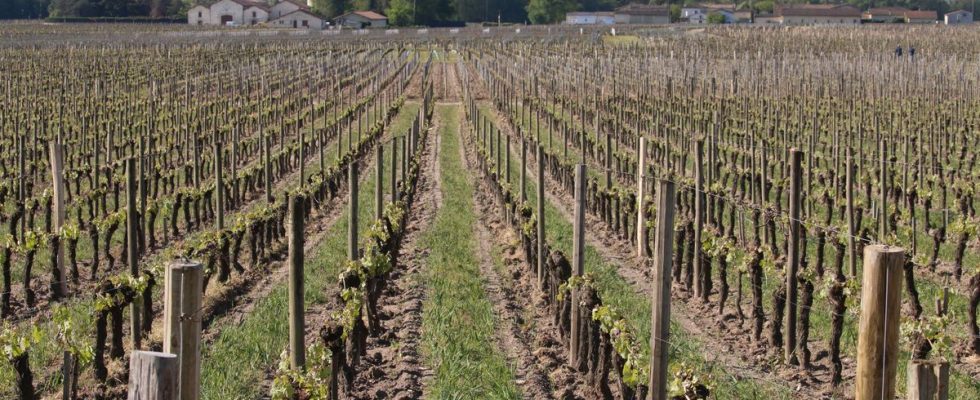Approved by the European Commission on November 3, the system for sanitary uprooting of vines in Gironde saw its implementing decree appear in the Official Journal this Sunday. “The definitive grubbing-up request window is open for one month from Monday, November 20,” announces the prefecture. 20 minutes takes stock of the situation.
Why pull out vines?
The objective is to “de-densify the Bordeaux vineyards in order to stop the progression of golden flavescence [une des maladies les plus dommageables du vignoble] » recalled the Gironde prefecture on October 12. Having suffered various crises in recent years, many Girondin winegrowers have had to abandon part of their vineyards, which has favored the progression of this disease. The grubbing plan ultimately concerns some 9,500 hectares of vines in Bordeaux, a vineyard which extends over 110,000 hectares. However, several professionals are warning about the economic situation of small wine growers in Bordeaux, particularly due to the drop in consumption of red wine in France, which could lead to other abandonment of plots in the coming years. Bernard Farges, vice-president of the Interprofessional Bordeaux Wine Council (CIVB), for his part pleads for “more diversification” within Bordeaux wines, as he explained to 20 minutes last February.
How is this plan to help with the uprooting of vines financed?
Aid for the sanitary uprooting of vines in Gironde is a new system with a total budget of 57 million euros, financed by the State on the one hand, and by the CIVB on the other. The aid from the CIVB, which amounts to 19 million euros, concerns wine growers who wish to develop a new agricultural activity, while the State aid, of 38 million euros, concerns wine growers who wish to stop all activity agricultural. This system aims to uproot up to 9,500 hectares assisted at the rate of 6,000 euros per hectare.
How will this plan work for wine growers?
Depending on whether or not wine growers wish to pursue a wine-growing or agricultural activity, the terms of access to the bonus are not the same. In the event of a total shutdown, to benefit from renaturation aid financed by the State, the winegrower undertakes to irreversibly uproot the eligible plots, with the obligation to reforest them or convert them into a natural zone for a period. minimum of 20 years. The aid financed by the CIVB supports crop diversification (which may include kiwi, olive, hemp, etc.) for those who want to continue.
Who are the candidates for uprooting?
Nearly 1,100 requests for grubbing authorization have already been submitted, or around 20% of wine growers in Gironde, with 300 professionals having even declared that they wanted to cease all wine-growing or agricultural activity. These requests must be made official via the one-stop shop which opens on Monday. Problem, in its current state, the plan appears to be unbalanced, since to date “the requests for diversification (…) exceed the 19 million euros available [enveloppe du CIVB] » indicates the prefecture, when the State envelope of 38 million euros (to renature the soil) is within reach of being reached. This is why “only diversification requests submitted during the pre-application are currently eligible for this component, within the limit of the total areas indicated per file”, specifies the prefecture.
At the end of the application submission period, eligible applicants will then receive an Authorization to Commence Works (ACT) to proceed with grubbing, before May 31, 2024.

